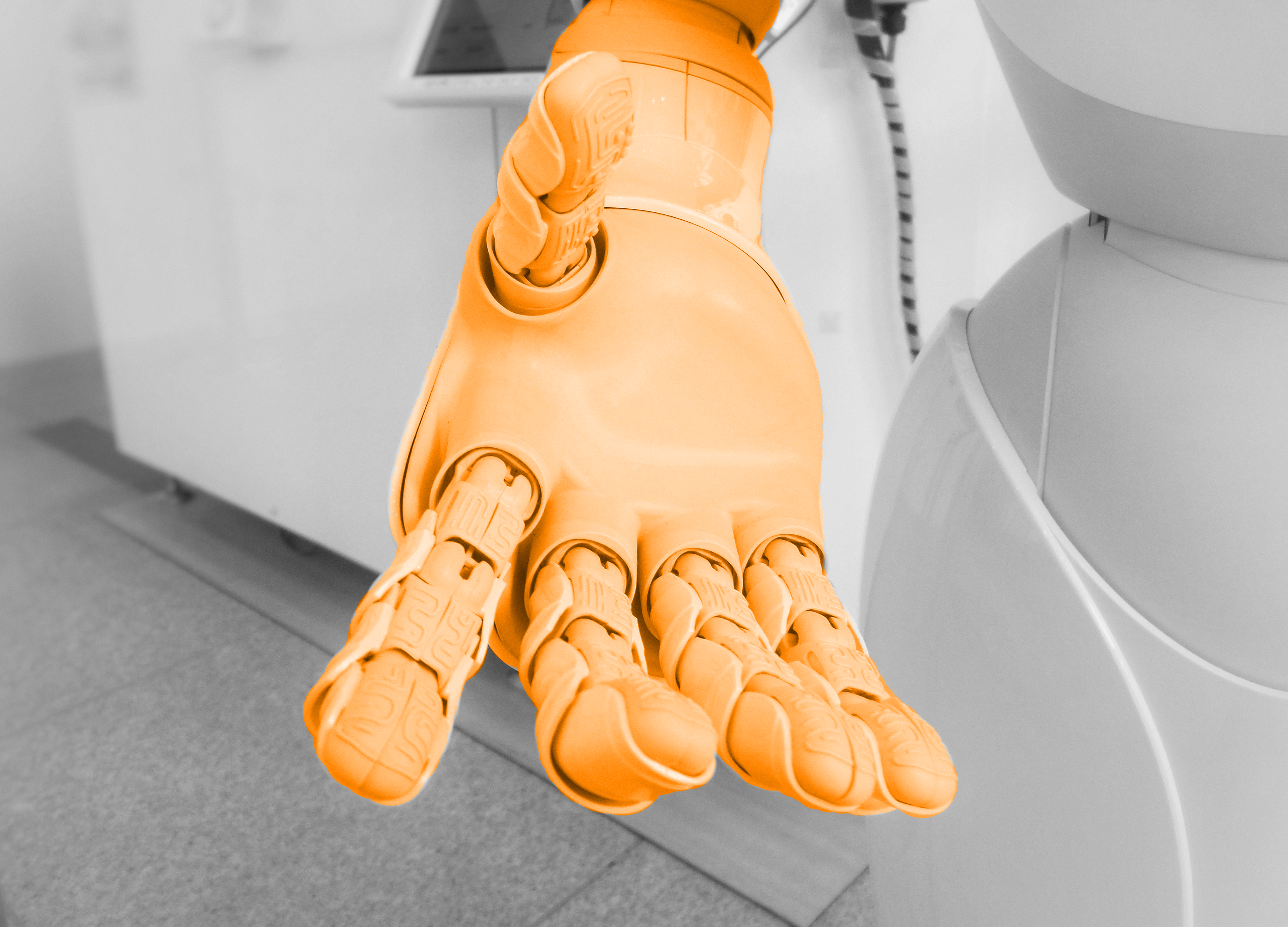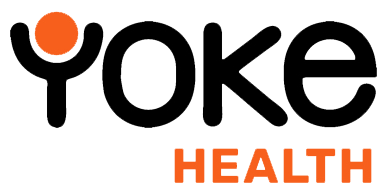Dr Robot will see you now – AI in healthcare over the next decade
Posted in Digital Healthcare Insights
Struggling to eat your meal in an NHS hospital bed? Need a diagnosis or want to recover faster? All these tasks, and much more, could soon be entrusted to cutting-edge AI. Here’s all you need to know about the next ten years that lie ahead.
£12.5bn.
That’s what’s on the table, when it comes to AI and automation savings
Full automation, bedside robots and AI diagnoses have the potential to liberate NHS staff time totalling to £12.5bn – a figure that represents almost 10% of the annual running costs of the NHS. This news comes at the right time too. There are currently 100,000 vacancies that remain unfilled, and the Institute for Fiscal Studies has also recently reported that the NHS required an additional £2,000 per UK household over the coming 15 years.
“Given the scale of productivity savings required in health and care – and the shortage of frontline staff – automation presents a significant opportunity to improve both the efficiency and the quality of care in the NHS”
Lord Darzi – Better Health and Care for All – A 10-Point Plan for the 2020s
But what might this future look like?
Picture the scene – you arrive at hospital. Usually, without AI technology, you’ll wait to see the receptionist. Then wait even longer to be seen by a triage nurse. Then, another wait to be assessed and treated by a doctor. Now, the alternative. Over the next ten years we could welcome patients into fully automated assessment suites. For those who are admitted, a patient could be transported to a bed by a robot, and even helped into it. During their stay, robots could also help to feed, bathe, mobilise and rehabilitate the patient. They could also communicate with family and friends, and monitor vital signs – picking up and reporting clinical observations to those who need to know (such as sepsis – a reaction to an infection which kills around 37,000 people every year). All of which is only half of the story of AI in the NHS over the coming decade…
Faster, more effective diagnosis that could save many lives
During the 2020s, we may well see diagnosis of diseases such as pneumonia, breast and skin cancers and various heart conditions become a routine task for AI. Yet AI diagnosis isn’t something to be anticipated, as it has already been in use for many years.
“Artificial intelligence that can diagnose disease earlier and improve prognosis is already here. We need to embed and build upon these innovations to accelerate and normalise implementation of what works across England”.
Sally Davis, the Chief Medical Officer
AI is ALREADY making life-changing, patient-saving diagnosis and delivering data to clinical monitoring teams who can intervene when necessary. Like the Technology Improved Health Management (TIHM) Test Bed, based in Surrey Heartlands, which is currently placed in the homes of 400 citizens with mild to moderate dementia. The bed can pick up on early signs of UTIs, which can quickly lead to falls without help. Once reported, a GP or other medical professional can visit to stop the UTI from developing.
Meanwhile, CT scans are being analysed by Heartflow AI, which helps doctors identify the areas where heart blood flow is disrupted by blockages; and the ‘C the Signs’ app is busy at work being trialled for identifying patients at risk of cancer at an early stage. Finally (but by no means the last example in the real-world) Google’s DeepMind has been in place since 2016, helping clinicians diagnose and treat sight-threatening conditions within seconds.
Perhaps one of the more fascinating use cases for AI, has been Oli the Chatbot, which has proven that patients can benefit from the compassion, care and comfort that AI is capable of giving, given the right implementation. The ChatBot, in Alder Hey Children’s Hospital, features as an elephant (the hospital’s mascot), and answering the questions of patients and their parents. In doing so Oli relieves concerns and demystifies treatment.
“We’re really enthusiastic and excited but clear that the technology itself has to be useful and deliver benefits to patients. It’s one of the reasons we’re happy to work with organisations like the Hartree Centre and IBM, because they can match our clinical expertise and patient knowledge with their ground-breaking technology”.
Iain Hennessey, Alder Hey Children’s Hospital
Mr Robot, time to scrub-up
Robots have been doing the rounds around operating tables since at least the turn of the millennium. Today, robotic assistance is in routine use for everything from keyhole surgery to open heart operations.
Surgical robots such as Versius, brought to the world by CMR Surgical, have cut down operation time from a lengthy 80 minutes, to just 30 minutes – which not only drives down costs and human resource needs, but also mental and physical exertion of surgeons through shorter period of intense concentration.
“In the UK, there are around 70 robots that have been purchased for use within our healthcare systems. Worldwide, that number is about 4,500. Together, those robots do around one million procedures each year”.
Martin Frost, the chief executive of CMR Surgical, a medical robotics company based in Cambridge
AI is already here. But what about the AI that’s around the corner?
“The power of artificial intelligence to improve medicine, to save lives, to improve the way treatments are done, that power is enormous. In this country, we’ve got the opportunity to be one of the leading countries in the world at using this new technology.
I want the NHS, through its AI lab, to actually be searching itself for new insights that are going to save lives”.
Matt Hancock, The Health Secretary
The NHS in England is in the middle of creating a national artificial intelligence laboratory to enhance the care of patients and advance research. This investment and interest in AI technology is going to pave the way for revolutionary changes for our NHS, yet caution must be executed. After all, it was only two short years ago that the NHS was hit by a cyber-attack which disrupted hospital and GP appointments. With enough investment and the right approach, we’ve no doubt that the NHS will look very different ten years from now –transformed and empowered by AI.

Monthly Archives
- July 2023
- July 2020
- June 2020
- May 2020
- April 2020
- March 2020
- February 2020
- January 2020
- December 2019
- October 2019
- September 2019
- August 2019
- July 2019

